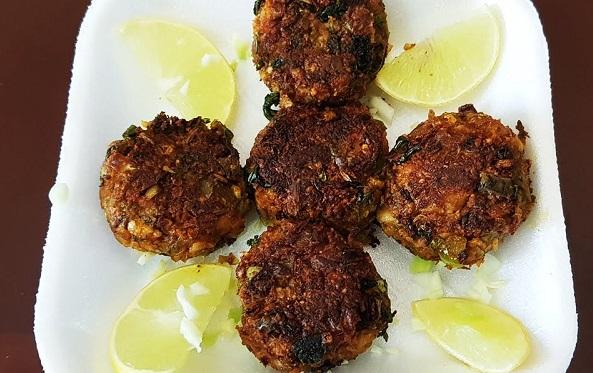Mushroom
Mushrooms are fleshy, edible fungi that are a low-calorie food and a good source of Vitamin B. Shiitake, porcini and chanterelle are some types of mushrooms. The edibility of mushroom depends on the absence of poisonous effects on humans and the desirable taste and aroma. They are somewhat meaty in flavor and taste and are also a great source of Vitamin D.

Grilled Mushroom Salad Recipe
Mushrooms are rich in Vitamin B that is vital for turning food (carbohydrates) into fuel (glucose), which the body burns to produce energy. They also help the body metabolize fats and protein. Mushrooms contain loads of vitamin B2 (riboflavin) and vitamin B3 (niacin).

Broccoli Curry Recipe
Broccoli so healthy, from fibre to vitamins and minerals. Broccoli is full of fiber, vitamin C, vitamin D, vitamin K, folate, and vitamin A. They are very good for ocular health. These substances protect eyes against macular degeneration and cataracts, while also repairing the damage caused by radiation.

Mushroom Uttapam Recipe
Regular consumption of mushrooms helps enhance immune system function by making antiviral produced and proteins released by cells. Therefore, mushrooms are beneficial in protecting and healing the body’s tissues. Moreover, they can boost the body defense against microbes.

Mushroom Potato Kebab Recipe
Mushrooms are also good sources of selenium, an antioxidant mineral, as well as copper, niacin, potassium and phosphorous. Additionally, mushrooms provide protein, vitamin C and iron. Because their cells walls are undigestible unless exposed to heat, you must cook mushrooms to get their nutritional benefits.

Mushroom & Pumpkin Soup Recipe
Mushroom is a great source of selenium. This healthy food can make your body produce more vitamin D especially when you are exposed to sunlight. Moreover, mushrooms contains no fat, no cholesterol, and no gluten. As it is low in calories, people often include mushrooms in a healthy diet for weight loss.

Cheesy Mushroom Recipe
Iron deficiency in your blood can lead to anemia that has some symptoms such as fatigue, headaches, and digestive problems. To prevent anemia, you should include iron-rich foods like mushrooms in your diet. Iron is beneficial in promoting the formation of red blood cells and protecting overall health.

Spinach Mushroom Salad Recipe
The calcium in spinach can help strengthen your bones to fight against injury, and vitamins A and C, fiber, folic acid, and other nutrients fight against colon and breast cancers. Spinach also helps to lower damaging protein levels in the blood and can protect against high blood pressure and heart disease.

Mushroom Oats Popcorn Recipe
Mushrooms are one of the few food sources for vitamin D, a fat-soluble vitamin that our bodies can make with exposure to sunlight, because growers are exposing their crops to small amounts of ultraviolet light. D vitamins are important because they help our bodies absorb calcium and promote bone growth.

Broccoli Mushroom Omelete Recipe
Mushrooms, broccoli, eggs are not only a good source of protein, they are full of good stuff that will keep you healthy for longer. A serve (100 g) of mushrooms provides more than 20 percent of the recommended daily intake (RDI) for each of the B vitamins (riboflavin, niacin, pantothenic acid), biotin and the minerals selenium and copper.




